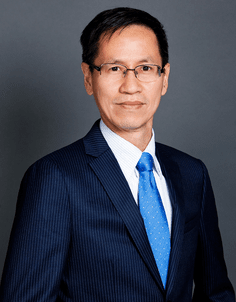


result

Feature Story
Bringing the Global Allergy/Immunology Community Together Through a Joint Congress
Bringing the Global Allergy/Immunology Community Together Through a Joint Congress
How we can learn from our colleagues across the globe

This year, allergist/immunologists from around the world will gather in San Diego, CA, USA, for a truly global event – the 2025 AAAAI / WAO Joint Congress. By working together, the American Academy of Allergy, Asthma & Immunology (AAAAI) and the World Allergy Organization (WAO) have designed an event that will shine a bright light on the research, practice differences and priorities of allergist/immunologists from different parts of the world.

Gary W.K. Wong, MD
Each year, WAO collaborates with a national or regional society to combine the annual World Allergy Congress (WAC) alongside their partner’s annual meeting. “The WAC presents a wonderful opportunity for our global network of colleagues to learn from each other,” Gary W.K. Wong, MD, President-Elect of WAO explained. “WAO’s global network opens up the AAAAI meeting to the rest of the world, and we think it makes sense to do this on a regular basis.” The WAC travels from region to region each year and collaborating this year with AAAAI for North America is a natural pairing, Dr. Wong said. “There’s chemistry, and this collaboration is better than the sum of its parts. You could say 1+1=3!”
Julie Wang, MD, FAAAAI, Chair of the Annual Meeting Program Committee, offered insights into why a joint event like this is so important for the wider allergy/immunology community. “The last Joint Congress in 2018 was a success, and so much has changed in the world in the last seven years. Working with our WAO colleagues has been an enriching experience, as we are all focused on sharing ideas and fostering community in our field as we learn about the latest innovations and practice-changing technologies, with a focus on improving patient outcomes.”
There is a lot to learn from our healthcare colleagues from different parts of the world, and events like the Joint Congress provide a unique platform for doing just that. “We can learn from each other about the differences in healthcare delivery systems, use of drugs and what physicians in each country prioritize. We all have different priorities, and if we go to a meeting focusing on one country or one region, you only get their perspective and their priorities. You don’t get the exposure to places where a condition is relatively uncommon,” Dr. Wong said.
Dr. Wong went on to explain, “take food allergies for example: the type of foods that cause severe allergic reactions for people who have only been in the U.S. are quite different from other parts of the world. But people are very mobile these days - people travel extensively for work and pleasure, and people relocate to other countries or regions. If you have only trained in the US, it’s important for you to know what’s happening in the rest of the world, and vice versa.”
Attendees can take this opportunity to learn more about how the field of allergy/immunology differs around the world in educational sessions, through this year’s research submissions and by simply taking the time to talk with healthcare professionals between sessions. Organizers of the Joint Congress hope that attendees will take this rare opportunity to really branch out and get to know their colleagues from different parts of the world.
While any year is a wonderful opportunity to host a Joint Congress, Dr. Wang provided more insights on why 2025 really was the year to collaborate with WAO.

“In fitting with this year’s theme of “Climate Change and Allergic Diseases: Global Impact on Health,” attendees will hear firsthand insights from clinicians and scientists around the world. Reviewing the impact of climate change on allergic diseases from varying perspectives will inform our understanding of evolving environmental exposures as well as clinical and immunologic responses. These discussions will also inform potential mitigation strategies and therapeutic measures as we adapt to our changing world.”

Julie Wang, MD, FAAAAI,
Chair of the Annual Meeting Program Committee
How should an average attendee approach the Joint Congress? “I encourage attendees to look at our Online Program to see the tremendous offerings that cover the full spectrum of allergy and immunology – basic science that underlie diagnostic and therapeutic innovations, translational science bridging the lab and clinical science addressing quality improvement, health equity and physician education and wellness,” Dr. Wang said. “I also want to highlight the Opening Ceremony and Welcome Reception on Thursday, February 27 from 4:15 to 5:45 pm as an event to reserve on your calendar as we kickoff the meeting!”
Get more insights on the Joint Congress and what to expect this year on the next pages!




